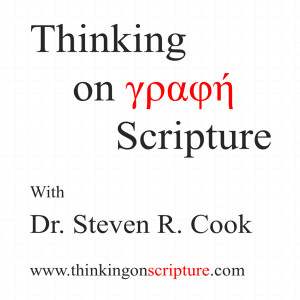
Saturday Mar 02, 2019
Joel 1:1-20
The book of Joel opens with the prophetic statement, “The word of the LORD that came to Joel, the son of Pethuel” (Joe 1:1). Joel’s audience includes the elders and inhabitants of Israel (Joe 1:2, 14), drunkards (vs. 5), priests (vs. 9, 13), farmers and vinedressers (vs. 11). Joel asks his audience if anyone can remember a plague of locusts like the one they’d just experienced (Joe 1:2), and instructs them to tell it to the generations that follow so that no one forgets (Joe 1:3). Joel describes four kinds of locusts that had ravaged the land and left it bare (Joe 1:4), and calls for the drunkards to weep because there’s no more wine for them to drink (Joe 1:5). The locusts are described as “a nation” that had invaded the land of Israel and wrought destruction upon the grapevines and fig trees (Joe 1:6-7). Other passages in Joel reveal that God had sent them for His purposes (Joe 2:11, 25). As a result of this damage, the people were to weep like a young bride who had lost her bridegroom (Joe 1:8). The priests mourn because the people have no grain or drink offerings to bring to them (Joe 1:9-10, 13). “The result was that the priests and the whole nation mourned. It was bad enough that the people did not have food and drink for their own enjoyment, but it was worse that they could not worship Yahweh.”[1] Because of the damage to the wheat, barley, vines, fig trees, pomegranate, palm and apple trees, “rejoicing dries up from the sons of men” (Joe 1:12-13). The joy of the Israelites was directly tied to the Lord’s blessings (Deut. 28:1-14), and judgment upon the land was an indication of their violation of the covenant agreement (Deut. 28:15, 38-40). Joel calls upon the inhabitants of the land to embark in national repentance, saying, “Consecrate a fast, proclaim a solemn assembly; gather the elders and all the inhabitants of the land to the house of the LORD your God, and cry out to the LORD” (Joe 1:14; cf. Neh. 9:1–2; Jer. 36:9; 2 Chron. 7:14). Joel compares the current locust plague of judgment to a future time of judgment, stating, “Alas for the day! For the day of the LORD is near, and it will come as destruction from the Almighty” (Joe 1:15; cf. 2:1, 11, 31; 3:14). This future “day of the Lord” refers to a time when God intervenes in the world to judge mankind. Joel then switches back to address the destruction of his day and the damage of food crops which resulted in the loss of “Gladness and joy from the house of our God” (Joe 1:16-17). Apparently there was a drought that kept seeds from germinating, and eventually the storehouses were emptied. Even the cattle and sheep groaned because there was nothing to eat (Joel 1:18, 20). The prophet himself is impacted by what’s happening in his day, and he states, “To You, O LORD, I cry; for fire has devoured the pastures of the wilderness and the flame has burned up all the trees of the field” (Joe 1:19). Though Joel was not personally guilty of the sin that led to the Lord’s judgment, he still suffered because of their actions and cried out to the Lord to intervene.
[1] Tom Constable, Tom Constable’s Expository Notes on the Bible (Galaxie Software, 2003), Joe 1:8.
No comments yet. Be the first to say something!